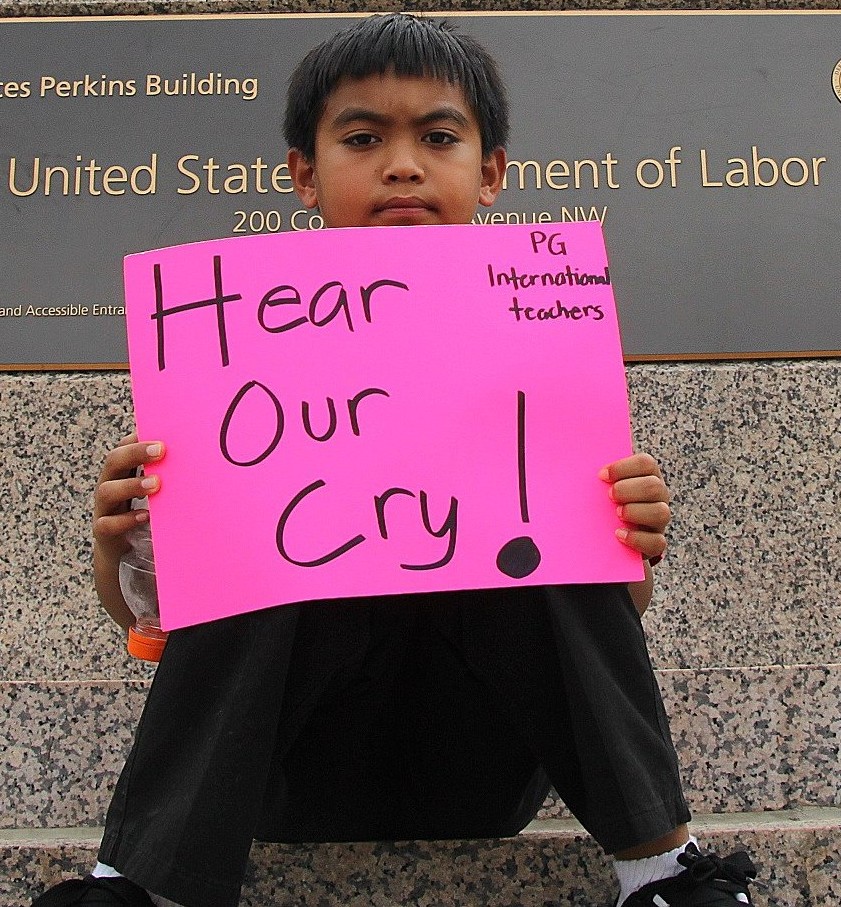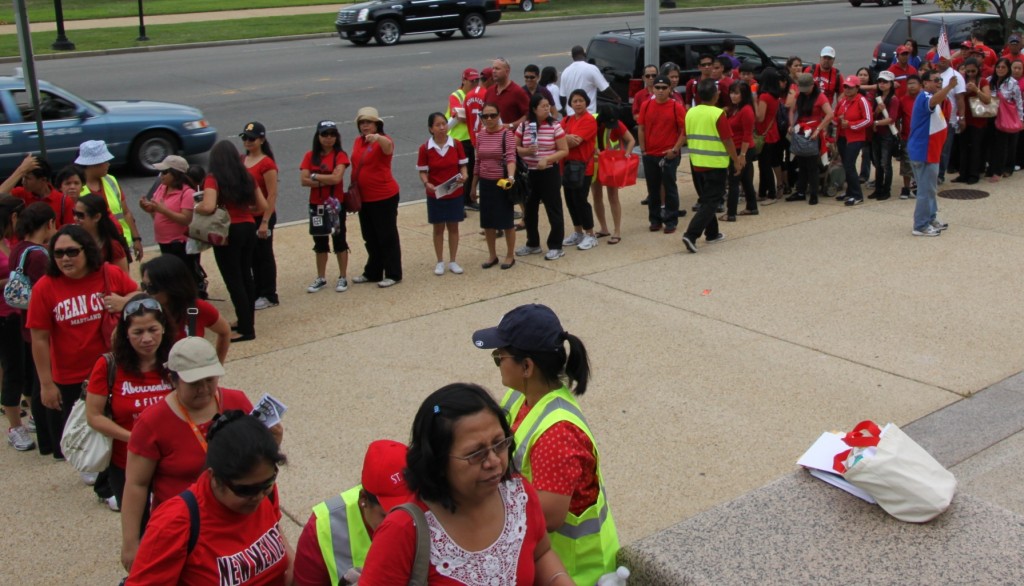Teachers as casualties of immigration fiasco
By Cristina DC Pastor
A labor violation by Maryland’s Prince George’s County Public Schools has resulted in an ugly confrontation with the U.S. Department of Labor, and some 800 Filipino teachers being caught in the crossfire.
It’s a complicated story that may have begun when the PGCPS was actively recruiting foreign-born teachers. From 2004 to 2009, the county sought highly-skilled teachers to set the bar for public school education and raise the standards in High School Math; High School Science; and High School English. Of the 1,044 foreign teachers hired during the period with H-1B visas, a “vast majority” came from the Philippines, according to a report.
Everything was going well in the beginning. The teachers loved their new jobs and new homes, and they were getting a lot of coverage in the local newspapers as some kind of a cultural oddity. Their presence drew mixed reactions from the community, with some parents welcoming the diligent and friendly teachers and others openly grousing that the foreigners were taking jobs away from the locals.
It wasn’t until about 2006 when the teachers noticed that something was not right.
According to the report obtained by The FilAm, “In 2006, 2007 and 2008, there were instances where newly arrived teachers were told to report to a PGCPS school without a definite teaching position/assignment. Others were assigned to schools that were fully staffed, which resulted in some classrooms having two teachers.”
And then on April 4, 2011, the DOL issued a ruling finding the PGCPS to be in “violation of labor conditions” and possible “violations of the H-1B regulations.” Essentially, the DOL was saying that certain fees that should be responsibility of the county were passed on to the teachers “including the fees related to the H-1B visa processing.”
“This was the first time that the teachers learned that PGCPS was under investigation by the DOL,” the report stated. Unknown to the teachers, the investigation covered the period from May 5, 2005 to January 10, 2011.
As the investigation was in progress, the teachers continued to pay their placement fees, H-1B fees, training fees, etc. even if these fees were the subject of the DOL’s inquiry against the county.
The PGCPS appealed the DOL findings, but on July 7, 2011, agreed to: “(a) to pay back (teachers’) wages in the amount of $4,222,146.35; (b) to pay civil money penalty reduced to $100,000.00; and (c) to be debarred for two years.”
It also agreed that it would not file any more employment-based immigration petition, or it would pay a fine in the amount of $1,740,000.00. At that point, all hiring and visa renewals have stopped. Some teachers who were promised adjustment of visas from H-1B to green cards had their hopes dashed.
Lawyers for the 800 Filipino teachers said the school system “willfully violated H-1B visa rules” by requiring the teachers to pay visa and other fees that should have been shouldered by the employer.
“As a result, hundreds of teachers could lose their jobs and sent back to the Philippines,” said J.T. Mallonga of the Filipino American Legal & Education Defense Fund.
An “injustice” plain and simple, said Millet Panga, a leader of the Philippine Educators Network (PEN), an umbrella of Filipino teachers in PGCPS. “We are the victims here.”
She said the teachers recognize the budget squeeze facing the county, and are hoping all parties could come to a “decision beneficial to all.”
Cristina DC Pastor is the founding editor of The FilAm.














Excellent blog post. Been following this issue but have a better understanding now of what the teachers are going through.
PGCPS Committed Wage Theft. DOL Stole their Dreams!
Tell the DOL that these teachers should not be punished with job loss and deportation because of their employer’s willful failure to comply with the law.
Stand with these teachers whose actions helped safeguard American workers’ wages!
Sign here: http://www.change.org/petitions/tell-dol-dont-deport-filipino-teachers-after-school-system-failed-them
For more information go visit: http://www.pen-usa.org